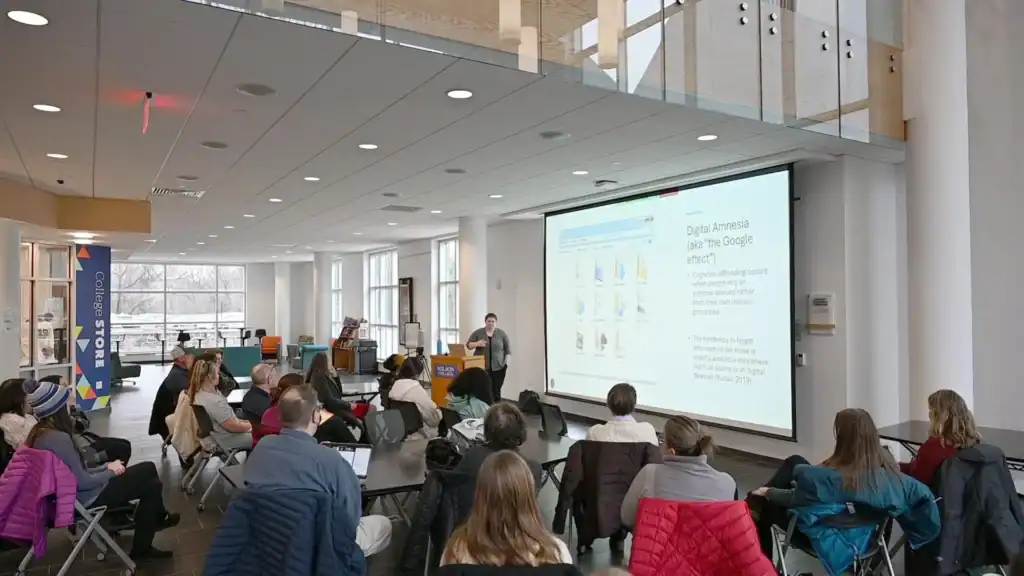Wilson College: Examining the Cognitive Impact of Digital Amnesia and Memory Outsourcing


In today’s digital age, the way we process, store, and recall information has dramatically changed. As educational institutions like Wilson College increasingly integrate technology into their learning environments, understanding the cognitive effects of this shift becomes essential. One phenomenon gaining attention is digital amnesia, a term that describes our reliance on external digital tools to remember information, which in turn influences our innate memory capabilities.
Understanding Digital Amnesia and Its Role in Modern Learning
Digital amnesia, often referred to as the “Google effect,” manifests when individuals forget information simply because they know they can access it online later. This reliance on technology for memory storage echoes ancient philosophical concerns, such as those voiced by Socrates, about externalizing memory and its possible detrimental consequences for cognitive health.
Research from psychologists like Linda Henkel and Betsy Sparrow has demonstrated that this phenomenon isn’t just anecdotal. For example, Henkel’s 2014 study showed that individuals who photographed artwork in a museum were less likely to remember the artwork later, compared to those who viewed the art without photographing it. Similarly, Sparrow’s study in 2011 found that participants were less likely to remember information when told it would be saved online, even if they were explicitly instructed to remember it.
These findings raise important questions about how digital tools shape our memory and whether this outsourcing impacts deeper cognitive processes essential for learning.
The Impact of Memory Outsourcing on Cognitive Function at Wilson College
At Wilson College, recent research presented by Dr. Brittany Harman highlights the practical implications of digital amnesia within educational settings. Her investigation focuses on how familiarity with digital access affects students’ memory retention and engagement during learning activities.
Harman’s research explores three areas:
- Laboratory settings: Whether digital amnesia can be reliably simulated in controlled environments where participants know that information will be available online later.
- Classroom applications: How students’ expectations of accessing lecture materials online influence their ability to remember key concepts during lessons.
- Motivational factors: Whether the assumption of easy digital access reduces students’ motivation to process information deeply.
Understanding these factors is critical for educators aiming to balance technology use with effective learning strategies. For example, knowing that digital reliance might decrease engagement could lead to pedagogical approaches that encourage active recall and cognitive effort despite digital convenience.
Balancing Technology and Cognitive Development in Education
With the prevalence of digital tools, it is essential for institutions like Wilson College to develop strategies that mitigate potential negative effects of memory outsourcing. Encouraging students to practice techniques such as spaced repetition, self-testing, and note-taking can offset some of the cognitive diminishment caused by over-reliance on external storage.
Moreover, integrating activities that promote deep processing—such as group discussions, critical thinking exercises, and problem-solving tasks—can reinforce memory and understanding, ensuring that the reliance on technology does not erode foundational cognitive skills.
Wilson College’s commitment to engaging with the latest research underscores the importance of informed educational policies. By monitoring how digital tools influence attention, memory, and learning outcomes, educators can better tailor their approaches to foster both technological proficiency and cognitive resilience.
What Students and Educators Can Do
To navigate the challenges of digital amnesia effectively, students should adopt strategies that promote active engagement with material. This includes creating summaries, teaching concepts to others, and testing themselves without digital aids. Educators, on the other hand, can design assessments that prioritize critical thinking and personal reflection, which are less susceptible to digital outsourcing.
Future Directions and Educational Implications
Understanding the cognitive effects of information outsourcing is vital for developing balanced educational environments that harness the benefits of digital technology while preserving essential cognitive skills. Wilson College’s ongoing research offers valuable insights into how we can optimize learning in the digital age, ensuring that reliance on external memory aids complements rather than compromises mental development.
As technology continues to evolve, educators and students must remain vigilant about fostering habits that support deep learning and memory retention. Approaches such as active recall, in-person discussions, and mindfulness in digital usage can help mitigate the risks of digital amnesia, leading to more effective and resilient learning experiences.
Embracing Digital Tools with Cognitive Awareness
The integration of digital technology into education offers unparalleled access to information and learning resources. However, as research from Wilson College highlights, this convenience should not come at the expense of our cognitive faculties. By understanding the impact of phenomena like digital amnesia and implementing strategies to reinforce memory and deep processing, students and educators can ensure that technology enhances rather than diminishes learning outcomes.
Maintaining a critical awareness of how digital tools influence mental habits will be central to fostering effective, sustainable education in the years ahead.
Fill out the form to get personalized assistance from an expert who can guide you through program selection, admissions requirements, and next steps to start your journey at Wilson College.

